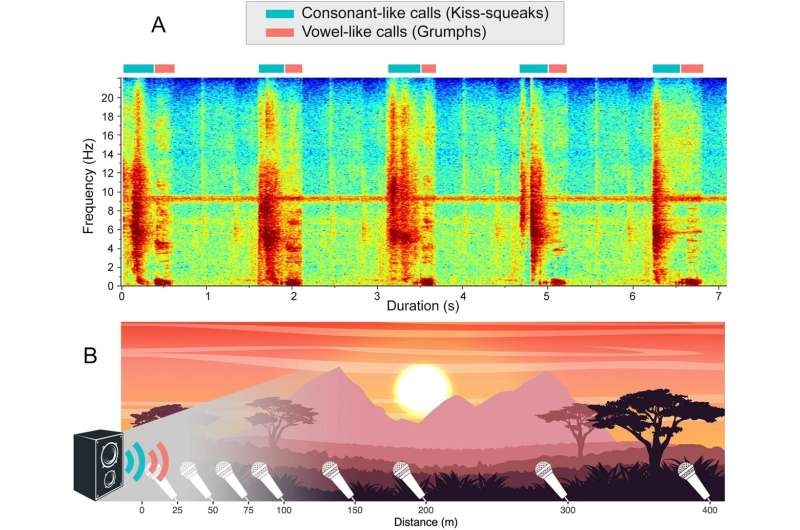This article has been reviewed according to Science X's editorial process and policies. Editors have highlighted the following attributes while ensuring the content's credibility:
fact-checked
peer-reviewed publication
trusted source
proofread
Changing African landscape may have influenced early human communication

The shift from dense forests to open plains in Africa may have caused our ancient ancestors to change their vocal calls, research involving Durham University anthropologists has found.
The researchers studied audible orangutan calls in a South African savannah to measure the different vowel and consonant-based sounds made by the animals and the distance at which they were still audible.
As part of the long-term Primate & Predator Project, based at the Anthropology field station in the Soutpansberg Mountains, they played 487 calls from Sumatran and Bornean orangutans and recorded how possible it was to hear them at intervals of 25 meters, up to a distance of 400 meters.
Around 80% of consonant-based calls were audible at 400 meters, while less than 20% of vowel-based calls remained audible at the same distance.
This showed that consonant-based calls remained audible over longer distances than vowel-based calls.
These findings suggest that consonant-based calls are more effective in open landscapes and were possibly influenced around 5.3 to 16 million years ago, during the middle and late Miocene Era, when Africa's landscapes turned from forests to wide-open grasslands, pushing ancient primates out of the trees and onto the ground.
Since soft tissues don't last in fossils, we can't know for sure how this landscape change affected their voices.
However, great apes make both vowel-like and consonant-like sounds. Orangutans, in particular, make these in combination, similar to a syllable, and as orangutans spend most of their time in the trees, they are an ideal model to test what changes might have happened when our ancestors were forced to adapt to their lower ground surroundings.
As consonants play a significant role in modern human languages, the findings suggest that the transition to open plains might have been pivotal in shaping early human vocal communication.
The findings are published in the journal Scientific Reports.
More information: Charlotte Gannon et al, Open plains are not a level playing field for hominid consonant-like versus vowel-like calls, Scientific Reports (2023). DOI: 10.1038/s41598-023-48165-7
Journal information: Scientific Reports
Provided by Durham University



















